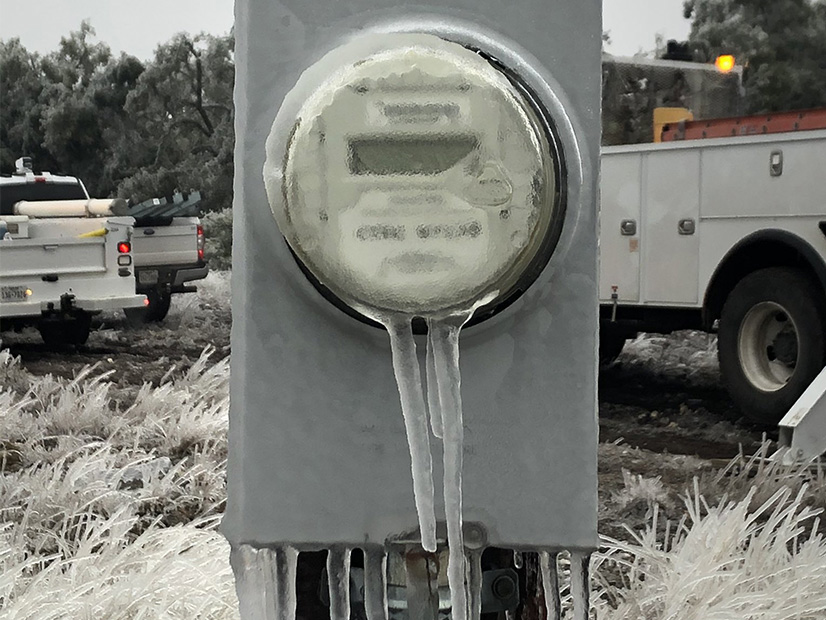During a Wednesday morning press conference designed for ERCOT’s and the Texas Public Utility Commission’s leaders to discuss the changes made to avoid a repeat this winter of February’s near-collapse and dayslong outages following a winter storm, PUC Chair Peter Lake boldly proclaimed, “The lights will stay on.”
Lake based his assertion on new weatherization rules for generation and natural gas facilities that went into effect Dec. 1; increased penalties for violations of those rules; and improved coordination between the electric and gas industries to prevent the loss of gas supplies that has been identified as the leading cause of the generation outages during the storm.
“No other power grid has made as many remarkable changes and in such an incredibly short amount of time as we have, and we will continue to improve our grid and the market,” he said.
The remarks echoed those of Texas Gov. Greg Abbott, who has been guaranteeing since November that the ERCOT grid will remain upright this winter. Abbott, who is fighting off several challengers on his Republican side of the aisle, has pointed to the 14 GW of installed capacity the grid operator has added during 2021. All but 1 GW of that capacity are wind, solar or battery storage.
Pressed by a local reporter that a recent ERCOT report — likely November’s seasonal assessment of resource adequacy (SARA) that included risk scenarios — went against his statement, Lake said the SARA “is a scenario analysis that evaluates a wide range of possibilities.” (See Twitter Blows up over ERCOT Communications.)
“It does not incorporate all of the extraordinary measures I’ve outlined today. It’s a scenario analysis; … it’s not a promise of an outcome,” he said. “When we look at all of the efforts we’ve made, the assets we have in ERCOT now … when we look at the realities on the ground in front of us, yes, we can say the lights are going to stay on.”
Interim ERCOT CEO Brad Jones said the grid operator has received attestations of winter readiness, signed by entities’ CEOs, for 97% of the more than 850 registered generation resources by a Dec. 1 deadline. Aided by two vendors, the grid operator’s new Planning and Weatherization Department has begun its inspections of those facilities.
Jones said staff have visited 55 generation units so far and plan to inspect more than 300 before the year is up. Those units accounted for 85% of the lost megawatts during the winter storm.
“We’ve had a good experience so far,” he said. “There’s been a lot of cooperation at each of the generation companies. There’ve been no red flags.”
Some companies have asked for good-cause exceptions. ERCOT will file a report with the PUC on Friday listing those companies.
PUC Docks 8 Generators
Following the press conference, PUC staff said they had filed violation reports against eight generation companies for failing to provide winter readiness reports by the Dec. 1 deadline, recommending $7.68 million in administrative fees.
The Division of Compliance and Enforcement identified 13 separate resources owned by the companies representing 801 MW of capacity. That amounts to less than 1% of Texas’ total installed capacity of 120 GW.
“Our commissioners have been abundantly clear that they expect generation entities to get ready for this winter,” PUC Executive Director Thomas Gleeson said. “The [PUC] cannot tolerate the failure of these companies to even file their readiness reports.”
Addressing the Texas Reliability Entity’s board meeting Wednesday, Commissioner Jimmy Glotfelty said, “Hopefully, this sends the signal that we are dead serious [that generators] have to winterize their facilities so that what happened in February never happens again.”
Shell Oil (NYSE:RDS.A) took the biggest hit. It was assessed $2.375 million for failing to file statements for four generating resources. Enforcement staff also recommended the penalty be increased $50,000 per day for each resource and an additional $25,000 for each day Shell remains in violation of the winter readiness rule after Wednesday.
Bull Creek Wind and OCI Alamo were each fined $1.1 million for not filing forms for two resources, with a recommended increase of $50,000 per resource for each day they remain in violation. The other companies and their recommended fees, which include a potential $50,000/day increase for remaining in violation, are:
- BT Cooke Solar, $550,000;
- Cotton Plains Wind, $725,000;
- Lamesa Solar, $550,000;
- Midway Solar, $550,000; and
- Texas Big Spring, $725,000.
The generators have 20 days to respond to the notices and can request a hearing.




